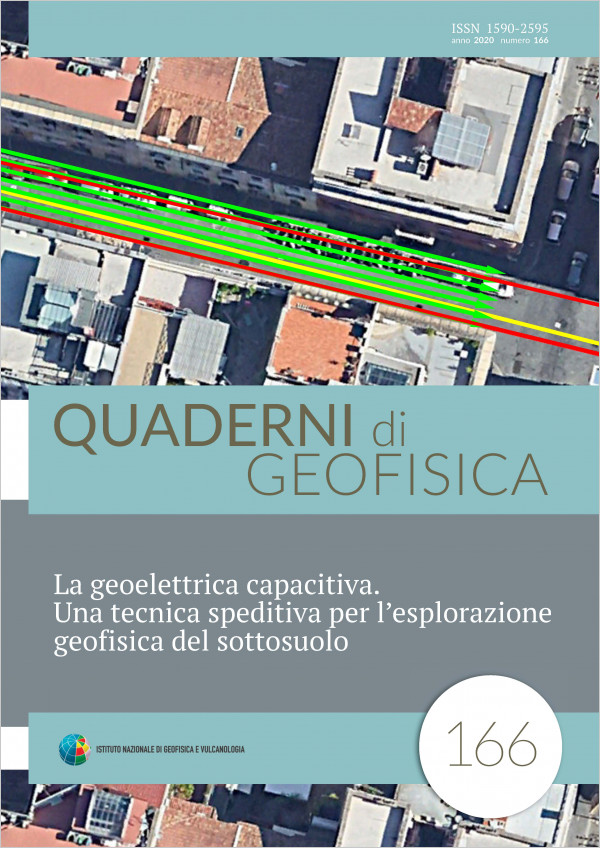La geoelettrica capacitiva. Una tecnica speditiva per l’esplorazione geofisica del sottosuolo
Main Article Content
Abstract
In recent years, the remarkable technological growth in the field of applied geophysics has undoubtedly been favored by the marked instrumental innovation that allowed the use of fast and easy-deployable techniques as well as to improve the quality of the measured data.
Capacitive-coupled resistivity tomography (CCR) is a geophysical prospecting technique that rapidly provides the electrical resistivity distribution of the subsoil along 2D acquisition profiles, as no galvanic contact is needed and sensors can be dragged over the surface. In this work, we present a series of results required by applying this technique in various contexts ranging from archaeological studies and geological and environmental applications also in urban contexts. We also show that recovered resistivity models are comparable with those obtained with the more laborious galvanic electrical measurements. We will explore not only the advantages of the technique in providing useful subsurface information but also the disadvantages and its main limitations.
Capacitive-coupled resistivity tomography (CCR) is a geophysical prospecting technique that rapidly provides the electrical resistivity distribution of the subsoil along 2D acquisition profiles, as no galvanic contact is needed and sensors can be dragged over the surface. In this work, we present a series of results required by applying this technique in various contexts ranging from archaeological studies and geological and environmental applications also in urban contexts. We also show that recovered resistivity models are comparable with those obtained with the more laborious galvanic electrical measurements. We will explore not only the advantages of the technique in providing useful subsurface information but also the disadvantages and its main limitations.
Article Details
Section
Article

This work is licensed under a Creative Commons Attribution 4.0 International License.

